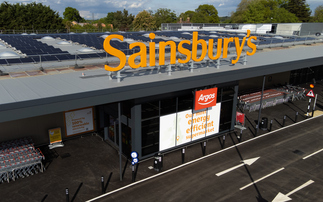Credit: iStock
Government announces over £4m of funding to support the roll out of 26 green mortgage pilot projects
The government has today announced that homeowners who take steps to make their properties more energy efficient could soon see their mortgage rates cut, as part of a series of new pilot projects.
The Department for Energy Security and Net Zero (DESNZ) today announced it has awarded a share of £4.1m to 26 innovative green finance projects that are aiming to explore how to make it easier for household to access the upfront capital required to fund energy efficiency improvements.
The trials, which are being delivered through the Green Home Finance Accelerator scheme, include plans to offer private households and landlords more attractive mortgage rates if they undertake approved energy efficiency improvements, as well as new offers to finance the installation of heat pumps and other clean technologies.
For example, Perenna Bank is to receive more than £193,000 in government funding to help develop a long-term, fixed-rate mortgage that would incentivise customers to make their homes more energy efficient by offering to reduce their mortgage rate.
Similarly, Ashman Bank Limited is to be awarded £200,000 to design and develop a trial to allow buy-to-let landlords to add the cost of making properties more energy efficient onto their mortgage - enabling them to borrow the money for the improvements and include it in their monthly repayments. Under the scheme, the bank would assess a property's energy efficiency, provide options on how it can be improved, and incorporate the cost of carrying out the work on to the duration of the mortgage.
The trial could prove significant given the government is continuing to consider long-awaited plans to impose new minimum energy efficiency standards on rented properties - proposals that have faced opposition from some landlords who have questioned how they will be able to fund energy efficiency improvements.
The government said the various new pilot projects - which include initiatives from a mix of clean tech providers, energy suppliers, banks, and financial firms - could help save households more than £460 a year on their energy bills.
"The government has put in place long-term commitments to ensure homes across the country have greater energy efficiency to reduce bills, drive down energy use and lower emissions," said Lord Callanan, Minister for Energy Efficiency and Green Finance.
"We are supporting these organisations to develop fresh and innovative ways of helping more people get better access to energy efficiency measures, such as loft insulation, double glazing and heat pumps."
Other projects to secure funding through the scheme include Aviva Equity Release UK Limited, which will receive £87,612 to design a service that allows homeowners in later life to access equity in their property through a specialist lifetime mortgage, freeing up cash to improve the energy efficiency of their homes.
Meanwhile, Clydesdale Bank PLC, trading as Virgin Money, is to receive £171,000 to support the development of a product that aims to offer bespoke energy efficiency products for customers' properties.
And a consortium featuring E.ON, the Energy Systems Catapult, and Heatio secured funding to support its pioneering heat-as-a-service (HaaS) trial, which would remove the upfront costs associated with installing, operating, and repairing low carbon heating solutions. Initial costs would be covered by a financial provider and then paid back by the consumer over an agreed long-term period.
The E.ON-led consortium will also examine how the pairing of power purchasing agreements (PPAs) and innovative grid services could create energy-as-a-service (EaaS) models that remove the upfront costs faced by consumers when considering a heat pump, solar PV, or battery storage system, while simultaneously lowering the household's energy costs by integrating preferential energy tariffs.
"Our work with E.ON and Heatio has the potential to reshape the UK's approach to green finance," said Becky Sweeney, business leader for homes at the Energy Systems Catapult. "We need to convince consumers that decarbonisation can work for them, rather than being imposed on them. If we don't get this right, we won't get their buy-in.
"The rollout and adoption of HaaS and EaaS models can help change this view, by deferring the up-front capital costs associated with low carbon heat and energy solutions - barriers which often convince consumers that decarbonisation is out of reach for them. Innovative services can also help to streamline the process for consumers. This will go a long way in convincing homeowners to make the switch to alternative heat and energy sources."
The government said that following a six month Discovery Phase period, all 26 Green Home Finance Accelerator projects would be able to apply for larger grant awards of between £200,000 and £2m to enable them to fully pilot their green finance products and services.
The move comes as the government continues to face calls to increase funding on energy efficiency schemes, with experts warning the UK will struggle to meet its target to reduce energy use by 15 per cent by 2030 without more ambitious energy efficiency policies.
BusinessGreen readers can sign up now for their free pass to this year's Net Zero Festival.










